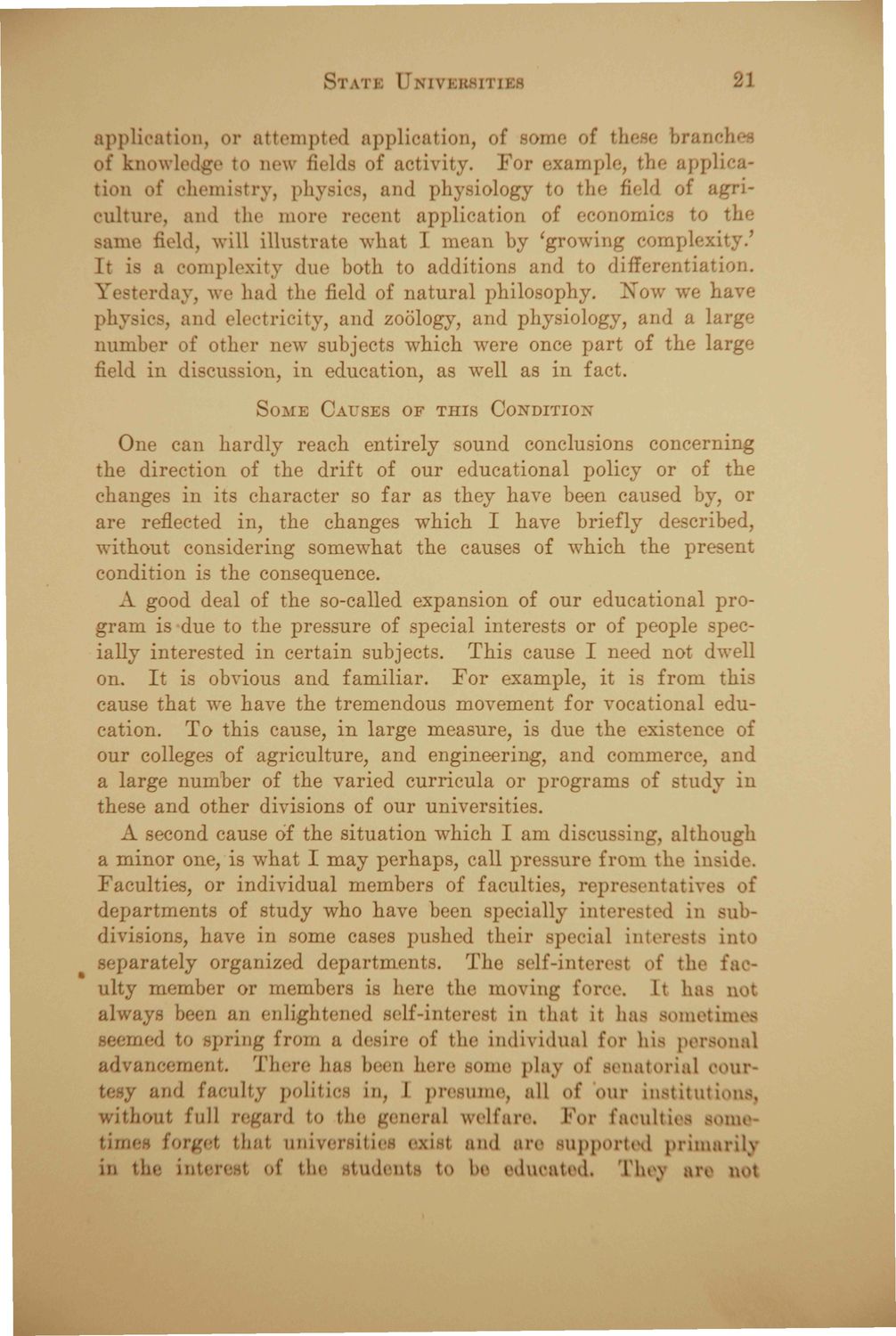| |
| |
Caption: Booklet - Kinley Speech Cirrculum and Consequences (1924)
This is a reduced-resolution page image for fast online browsing.

EXTRACTED TEXT FROM PAGE:
Si A I I . U N I V K K I I II 21 application, or attempt I application, of some of th< branch*of knowledge to new fields of activity. For example, the application of chemistry, physics, and physiology to the field of agriculture, and the more recent application of economics to the same field, will illustrate what ] mean by 'growing compl .' It is a complexity due both to additions and to differei .on. Yesterday, we had the field of natural philosophy. 'Now we have ph ics, and electricity, and zoology, and physiology, and a larg number of other new subjects which were once part of the larg< field in discussion, in education, as well as in fact. S O M E CAUSES OF THIS CONDITION One can hardly reach entirely sound conclusions concerning the direction of the drift of our educational policy or of the changes in its character so far as they have been caused by, or are reflected in, the changes which I have briefly described, without considering somewhat the causes of which the present condition is the consequence. A good deal of the so-called expansion of our educational program is due to the pressure of special interests or of people specially interested in certain subjects. This cause I need not dwell on. I t is obvious and familiar. For example, it is from thi cause that we have the tremendous movement for vocational education. To this cause, in large measure, is due the existence of our colleges of agriculture, and engineering, and commerce, and a large number of the varied curricula or programs of study in these and other divisions of our universities. A second cause of the situation which I am discussing, although a minor one, is what I may perhaps, call pressure from the inside. Faculties, or individual members of faculties, representative f departments of study who have been sp< [ally inter ted in Bubdivisions, have in some cases pushed their special interests into •parately organized departments. The self-interest of the faculty member or members is here the moving force. It has not always been an enlightened self-interest in that it has sometimes Seemed to s p r i n g from a desire of t h e i n d i v i d u a l for his personal adv merit. T h e r e has be< n here some piny of senatoi \\ court >y and faculty politics in, I presume, all of OUr i n s t i t u t i o n s , without full regard to the general welfare. For faculties sometimes ioi'wt thai univi utiei exist and are supported primarily in the int< I of the .students to ho Incated. Thev are not
| |